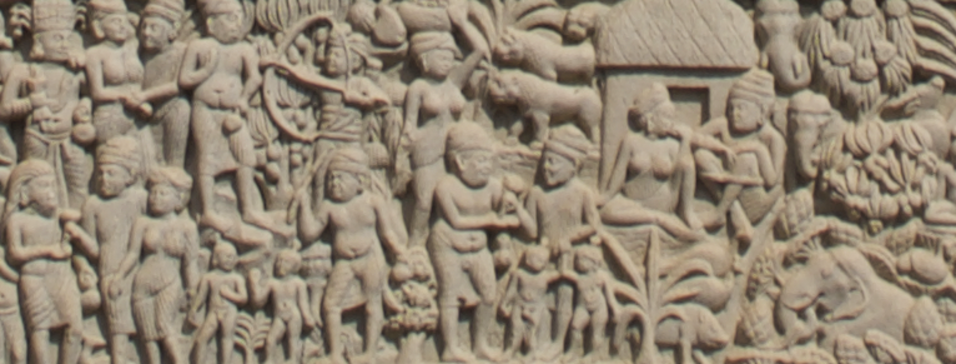This lecture asks what new insights we might gain from looking at one of the most famous of all Buddhist narratives – the story of Prince Viśvantara, who gives away his children and his wife at the peak of his generosity – as a work of ‘religious literature’. What difference does it make to consider the narrative ‘literature’ rather than ‘story’ or ‘text’? In particular, how can an appreciation of its literary features inform our understanding of the intended audience response to the story, given its contentious and emotionally charged events? Furthermore, what is the role of emotional response in the religious or ethical goals of the story? By exploring such questions, the lecture offers a model for reading ancient religious literature that is informed by literary theory, but attentive to what the texts themselves are telling us about their ultimate value.
About the speaker:
Naomi Appleton is Professor of Buddhist Studies and Indian Religions at the University of Edinburgh, where she has worked since 2012. Her primary research interest is the role of stories in the construction, communication and challenge of religious ideas in early South Asia. She has published widely on jātaka literature and other Buddhist narrative genres (including Jātaka Stories in Theravada Buddhism and Many Buddhas, One Buddha), as well as on the relationship between Buddhist, Jain and early Hindu narrative literature (including Narrating Karma and Rebirth and Shared Characters in Jain, Buddhist and Hindu Narrative). She also oversees the Jataka Database project (https://jatakastories.div.ed.ac.uk) and is co-director of the Edinburgh Buddhist Studies research network

